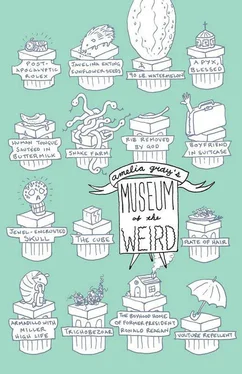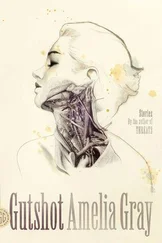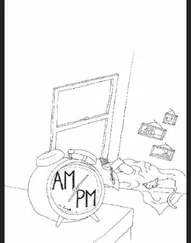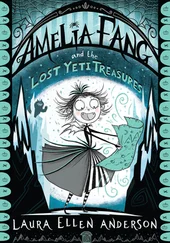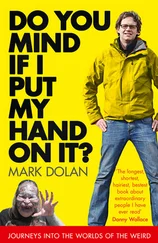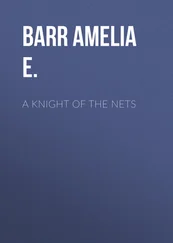There they were, dressed for service. Every week, Dale pressed his pants and sharpened her blade lovingly against the oilstone. He knew it looked a little strange for a man to prop a paring knife next to him in the pew, he realized that, but he figured that as long as he kept the tip of the blade protected with a cork, nobody would say anything. One Sunday, the head usher tapped him on the shoulder as the first hymn began.
“I’m sorry to disturb you,” the usher said, once they reached the narthex. They sat on the spare pew under the picture window, as they did when they had these conversations. Dale’s paring knife rested between them.
“It’s no trouble,” Dale said. They were Presbyterians, which meant they were unfailingly polite.
“The knife is bothering folks again,” the usher said. “I know you don’t mean to.”
“Who is bothered?”
“It’s a new family. We’re trying to keep them in the flock. We value young families, as you know.”
“My wife and I are a young family,” Dale said.
“And we welcome and accommodate you, as we have for years.” “I wonder if we would feel more welcome if we had children.” The usher took a long moment to scrape a patch of candle wax from the wooden pew with a credit card. Wax shavings drifted to the seat between them. “Of course that’s not necessary,” he said. “Perhaps you could keep your wife in your breast pocket? Close to your heart?” The usher nodded politely to the paring knife.
“I respect your position,” Dale said. “I respect that we can have a dialogue about this. But when I’m sitting in church, I’m trying to hear a sermon, and everybody else should be too. Instead, everyone’s swiveling around and looking at me, and you’re having to come drag me out.”
“They don’t understand your position,” the usher said.
“Darn right they don’t understand my position. That’s exactly what I’m trying to say, here. This is a misunderstanding on their part.”
“And in turn, would you say you perhaps misunderstand their position?”
“I don’t understand it,” Dale said, “but I don’t misunderstand it. There’s a slight difference there.”
“But a difference, all the same.”
The sermon was over and the organ had begun to play the offertory. Dale and the usher stood. “I may as well head out and beat the rush,” Dale said.
“For what it’s worth,” the usher said, “I think she’s a handsome knife.”
Dale slipped her into his breast pocket. “I appreciate that, sir.”
* * *
Howard sometimes wanted to cook and eat the frozen tilapia, but he always resisted. He made a special portable cooler, one that could be plugged into a wall outlet or a cigarette lighter. This allowed Howard to keep the wife in bed with him, even to take her on short trips, such as to the Western history museum Howard loved, the one with the special barbed-wire exhibit. There were many different types of barbed-wire, but his favorite was the type with the independently rotating spurs, five every yard. It was too bad about the safety glass. If the safety glass was not in place, Howard would flick the spurs, sending rust flying. He had fitted his portable cooler with a convenient shoulder strap, which allowed him to carry the wife right into the museum. They could be in there for an hour and a half before thawing became an issue.
By noon, there were a few more boats on the water, and the campers were moving around on the shore. Dale adjusted the rod and watched the patterns his line made on the water. His Rick Clunn baitcaster glinted in the sun. “Here’s my thoughts,” Dale said. “As adults, we experience a finite number of crystallizing moments in our lives, these points when we each had to close the door on a person or a feeling, or a way of life. The night of that formal dance in high school, I closed the door on women.”
It took Howard some energy to consider that far back. “Because Jan Parmentel got sick?”
“She could have at least told her girlfriends to tell me.” Howard reeled in his line and cast it again. “Seems like a minor infraction.”
“Sure, it was. It was. But it hit me at just the right time, right on my sweet spot. You know how baseball bats have a sweet spot, and you hit the ball right at that spot and it flies over the fence? Every time?”
Dale looked to Howard for confirmation. Howard twitched his line.
“Winter Formal 1983 was my sweet spot,” Dale said, “and Jan Parmentel was the last girl on Earth.”
Howard’s portable cooler was empty at his feet, as the bag of frozen tilapia was snug in with sandwiches and beer in their larger cooler. Dale’s paring knife was still in his breast pocket. It rubbed a little against the side of the pocket and had begun to slightly cut the fabric. It was just a few threads every day, but soon the shirt would be ruined. On the shore, a lone camper, a woman in a black bathing suit, was waving. They watched her.
“I believe that woman is waving at us,” Howard said.
“She’s just waving,” Dale said. “She’s not waving at us.”
“It looks like she’s by herself out there.”
Dale squinted. “You think?”
“Maybe she needs help.”
“That isn’t our business.”
“Come on, now. A woman’s out there waving directly at us, and you’re saying that’s none of our business? There’s some idea of implicit blame there, if something was happening to her.
It was difficult to see the woman from where they were sitting, but she was definitely moving her arms in their direction. Howard could barely make out the black of her bathing suit and the white of her legs. She had both hands over her head. Howard reeled in and started the motor. “Let’s just have a look,” he said.
* * *
On shore, Wendy finished her beer and backed up to accommodate the advancing boat. “Howdy,” she said, snapping the wide band of her bathing suit on an encroaching mosquito. The men stepped out of the boat and pulled it farther ashore. Dale reached in and retrieved his Rick Clunn baitcaster and rod, carefully securing the line.
“Hi there,” said Howard.
“Good day for fishing.”
“Were you waving at us?” Dale asked.
“Pardon?”
“Settle a bet,” he said. “Were you waving?”
“I was stretching,” Wendy said. She had a wide smile that displayed the line of gums above her teeth. Howard estimated her to be about five years younger than he.
“Knew it,” Dale said. “I knew it.”
“We were just getting ready for a little lunch,” Howard said. “Mind joining us?”
“Sure, I’ve got a couple extra beers. I was about to have a bite, myself.”
Howard hauled the cooler out of the boat and planted it next to Wendy’s lawn chair. “I’m Howard, this is Dale.”
“Wendy,” she said. She was pretty, Howard observed. They shook hands and she reached into her backpack. “Care for a beer?”
“I’ve got one right here, thanks.” He opened his cooler and pulled the sandwiches out with his beer. The plastic bag holding the sandwiches had opened, and Howard examined the food inside, wrapped with wax paper. The bread was wet but salvageable. He handed the drier sandwich to Dale and picked a soaked piece of bread off a second. They were bologna sandwiches, which reminded Howard of school. He wasn’t sure how a plain girl like Jan Parmentel could ruin a man’s entire outlook on life Dale was eating his sandwich and watching them moodily. “Sorry they’re a bit wet,” Howard said. “The bag broke.” “It’s a good sandwich,” Dale said.
“Bologna from the old days.”
“What old days?”
“Back in school, like we were talking about.”
Dale shook his head. “I didn’t eat bologna.”
Читать дальше
